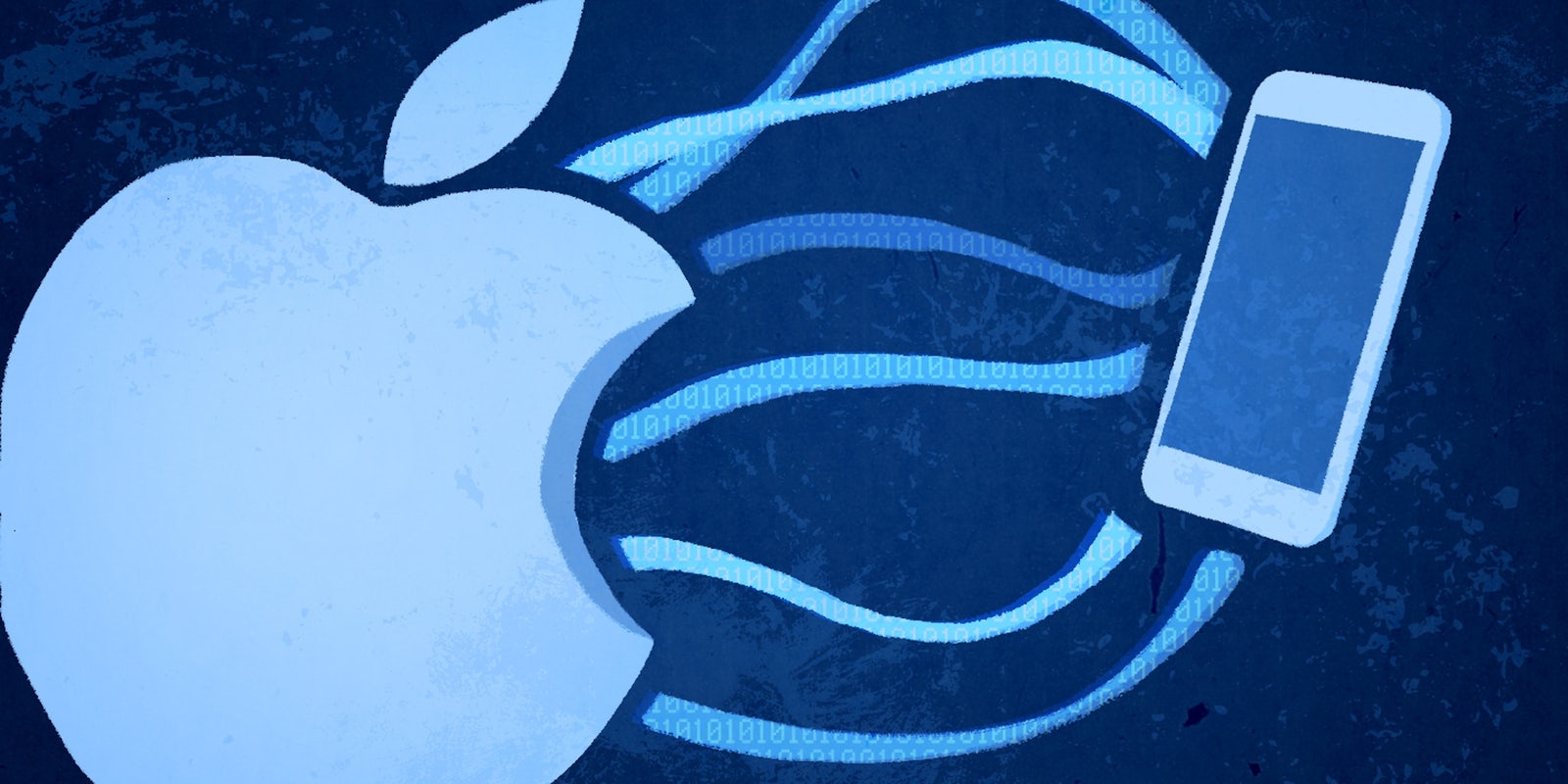The American Civil Liberties Union will file an amicus brief on Wednesday in support of Apple‘s high-profile legal battle with the U.S. Department of Justice over access to a terrorist’s iPhone.
Apple is currently fighting a court order that requires the company to create specialized software that would allow the FBI to bypass security features on the iPhone 5c of deceased San Bernardino shooter Syed Rizwan Farook.
The court is using a 220-year-old law, the All Writs Act, to compel Apple to create the modified version of the iPhone’s operating system. If Apple complies, FBI investigators would be able to flood the device with password combinations and thus bypass the encryption on the phone.
The ACLU is arguing that Apple should not be compelled to create this software for two reasons. One, the ACLU claims the All Writs Act, a law used when other legislation fails to address a specific case, does not give the government the authority to force Apple to create this software. Second, the brief maintains that the order violates the Constitution, specifically the Fifth Amendment, on the grounds that the burden placed on Apple to create this software would exceed legal limits.
The civil-society group is also arguing that multiple conditions of the All Writs Act—the ones saying the order must not be unreasonably burdensome for the party being compelled and that the company have some connection to the investigation—are not met.
“Apple may not be compelled under the All Writs Act to assist the government here because it does not possess or control the information the government seeks,” ACLU’s brief reads. “When the Act is used to supplement a court’s warrant authority, as the government seeks to do in this case, its application is limited to circumstances in which the third party either possesses or controls the information to which the warrant grants access.”
The burden on Apple isn’t just the time and resources that would be used to developed the specialized version of the operating system, the ACLU argues. The burden also includes the millions of iPhone user’s privacy and security that may be impacted by the creation of this software.
“The burden imposed here, by contrast, would be unprecedented—not just in its effect on Apple, but in its consequences for Apple’s millions of customers,” the brief says. “Simply put, what the government seeks here is an authority that would undermine American and global trust in software security updates, with catastrophic consequences for digital security and privacy.”
Apple made both these arguments last week in its motion to vacate the order. In an open letter to customers published hours after the court issued its order in the San Bernardino case, Apple CEO Tim Cook railed against the judge’s order.
“They have asked us to build a backdoor to the iPhone,” Cook wrote. “While we believe the FBI’s intentions are good, it would be wrong for the government to force us to build a backdoor into our products. And ultimately, we fear that this demand would undermine the very freedoms and liberty our government is meant to protect.”
The U.S. Department of Justice has claimed that Apple’s objection to the court order is primarily motivated by its “marketing strategy” and business interests.
“Based on Apple’s recent public statement and other statements by Apple,” the government wrote, “Apple’s current refusal to comply with the Court’s Order, despite the technical feasibility of doing so, instead appears to be based on its concern for its business model and public brand marketing strategy.”
On Monday, a magistrate judge in New York’s Eastern District Court ruled in a similar case that the government could not use the All Writs Act to compel Apple to assist law enforcement in unlocking an iPhone. The judge also decided that Congress’s failure to pass legislation on this issue showed a desire to not give the government these powers.
Here’s the full text of the ACLU’s amicus brief filed on behalf of Apple:
Illustration via Max Fleishman


